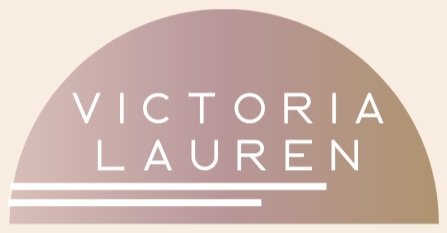Science-based Supplements: How a new wave of dietary supplements are taking a page from big pharma
The US Food and Drug Administration (FDA) is charged with protecting public health. With a purview ranging from edible glitter to cardiac implants, you can imagine they have their hands full. In this article we will explore the differences in regulatory pathways for synthetic drugs versus biomimetic supplements and their associated challenges.
The pathway to FDA approval is very different depending on the product. Pharmaceutical companies, for example, file an Investigational New Drug Application prior to commencing multi-phase clinical trials that go on for years before filing a New Drug Application. These trials can be extremely expensive.
Deloitte’s report on pharmaceutical innovation states, “The average cost to develop an asset in our 2022 analysis was $2.2 billion, an increase of $298 million from 2021,” [1]. Pharmaceutical startups struggle because of how cost prohibitive clinical trials are for a New Drug Application.
Supplements are in an entirely different class. The FDA doesn’t actually approve supplements for market release and companies simply file a New Dietary Ingredient form (or point to an existing one). In 1994 the Dietary Supplement Health & Education Act classified dietary supplements as food and not drugs. That means they do not need to be proven as safe or effective before being sold to the public.
The reputation of supplement companies has suffered greatly in past decades due to misleading medical claims and multi-level marketing pyramid schemes. The FDA and the Federal Trade Commission (FTC) share jurisdiction over the marketing of dietary supplements and will file lawsuits against companies for making illegitimate claims. The company Neora was charged for making bogus claims that its supplements could treat concussions, Alzheimer’s, Parkinson’s, and traumatic brain injuries! Nutritional supplement companies like Herbalife and AdvoCare were fined a combined $170 million in 2019 for illegally operating as a pyramid scheme [2].
While you may be left wondering why we trust companies to self-monitor product safety, the good news is that consumers are demanding to see more research-backed claims. This is where the Founder & CEO of Mimio Health, Chris Rhodes, sees an opportunity.
With a PhD in Nutritional Biochemistry, Chris has had a longtime fascination with health and longevity. Reflecting on his quest to maximize human lifespan he said,
“What was once considered myth and legend is now a legitimate academic pursuit backed by rigorous science.”
When he began reviewing the research on fasting’s effects on key health indicators, he got excited. With himself as the guinea pig he began following an alternate day fasting schedule while tracking his immune health and cellular function. He got to witness first hand that fasting was able to markedly improve his cellular health, making his cells more resilient and optimizing their function for longevity. Unfortunately, the social isolation associated with fasting (dinner dates get weird when there’s a 50/50 chance you won’t be eating) made him question if there wasn’t a better solution. The dream of Mimio was born.
In a pilot study with 20 participants at UC Davis, Chris was able to identify four synergistic molecules that were present in a fasted state.
“We took 20 young people and fasted them for 36 hours. We found that their plasma functionality was significantly enhanced - it became more cardioprotective, stress-resistant, and potently anti-inflammatory. When we looked at what could be responsible for these improvements, we found there were over 300 differences in their plasma between a baseline and a 36-hour fasted state. Of those differences we identified 4 bioactive metabolites that were upregulated during prolonged fasting that when combined together could replicate many of the beneficial effects of fasting. Together they could even extend lifespan in model organisms by 96% without any need to fast,” [3].
Using these initial findings Chris was able to raise a seed round from investors connected to the IndieBio Accelerator program.
At this point I said to Chris, “Just because we see certain metabolic markers are elevated after 36 hours of fasting, we don’t know the mechanism of action. Will ingesting the same metabolites produce the same effects? It could be a separate phenomena.”
He agreed that ingesting things like precursors don’t necessarily have the same benefit downstream, but then excitedly hit me with this:
His latest human clinical trial (publication pending) looked at the effects of ingesting the four synergistic metabolites - PEA, OEA, Spermidine, and Nicotinamide - as a supplement with breakfast. The hope was that Mimio would help negate some of the proinflammatory load associated with food consumption, but incredibly they found that it had an ameliorative effect and actually improved plasma functionality! This means not only did Mimio prevent bad things, it actually improved things.
When asked about the challenges of starting Mimio Health, Chris said,
“The trouble was our product, a biomimetic supplement, was often misunderstood. You say ‘oleoylethanolamide’ and investors think you’re a pharmaceutical startup. You say ‘spermidine’ to a manufacturer and they say, ‘Sorry, we can only do wheatgrass germ extract.’”
This made it difficult to find a manufacturer who aligned with Mimio’s desire for scientific rigor on top of good manufacturing practices.
Companies like Mimio who go above and beyond to scientifically assess their formulation using human clinical trials are setting a new precedent for supplements [4]. With the rise of companies that operate non-FDA clinical research trials for supplement companies, this is in fact a growing trend. Citrus Labs specifically conducts clinical trials for supplement companies. Examine aggregates and summarizes supplement research - without industry ties. Climb automates administration for both FDA regulated and non-FDA regulated clinical trials.
While supplements used to be the wild west, we are seeing evidence of new institutions and structures that improve peoples’ health outcomes and product trust. Consumers can support this new trend by choosing companies which make formulations founded in science.
Victoria is a Product Strategy & Leadership Coach with 14 years of experience in corporate America, spanning from industrial powerhouses to agile startups. With a background in biomedical engineering, Victoria’s expertise include med device sales, health tech marketing, and full lifecycle product management. As an operator-turned-coach, Victoria excels at guiding leaders of growth stage startups in the med device, health tech and pharma industries.
References
C. Rhodes, et al. Human fasting modulates macrophage function and upregulates multiple bioactive metabolites that extend lifespan in C elegans: a pilot clinical study, The American Journal of Clinical Nutrition, Volume 117, Issue 2, 2023, Pages 286-297, ISSN 0002-9165, https://doi.org/10.1016/j.ajcnut.2022.10.015.

